Home Water Filtration Systems FAQ
Table of Contents
ALL ABOUT WATER FILTRATION SYSTEMS
TYPES OF WATER PROBLEMS TREATED
HOW TO CHOOSE THE RIGHT HOME WATER FILTRATION SYSTEM
- What is the best home water filtration system?
- What is the best water filtration system for under sink?
- What should I look for when buying a whole house water filter?
- Can I install my own whole house water filter?
- Which home water filtration system has the highest ratings?
- Will Installing a Home Water Filtration System Void My Home Warranty?
- Can I Install my own whole House Water filtration System?
HOW MUCH DO HOME WATER FILTRATION SYSTEMS COST?
ALL ABOUT WATER FILTRATION SYSTEMS
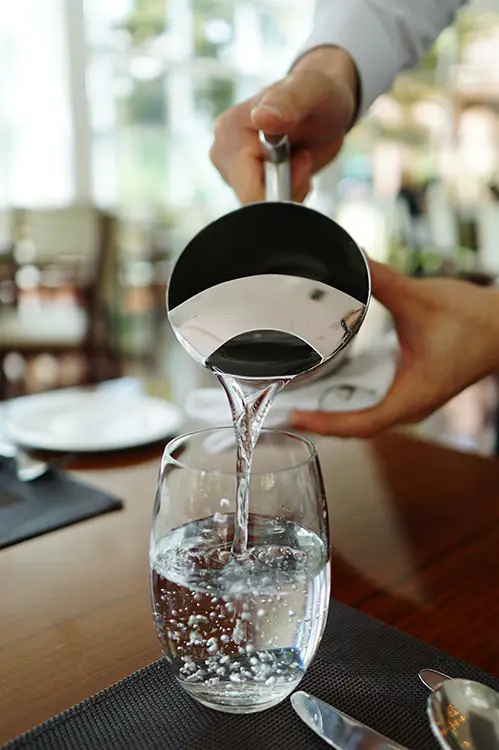
What is a home water filtration system?
A home water filtration system corrects issues with the water flowing through the pipes and faucets of your home. The issues can include hardness (due to mineral deposits), turbidity (dirt and contaminants suspended in the water), and/or bad tastes and smells (often due to being treated with chlorine).
In addition to filtering out the dirt and contaminants present in the water, a home water filtration system also removes the mineral deposits and any chemical tastes and odors so that you have cleaner, safer, great tasting water to drink, cook with, bathe in, and clean with.
Whether you are on well water or municipal water, whole-house filtration systems work to remove microns and other chemicals from your water.
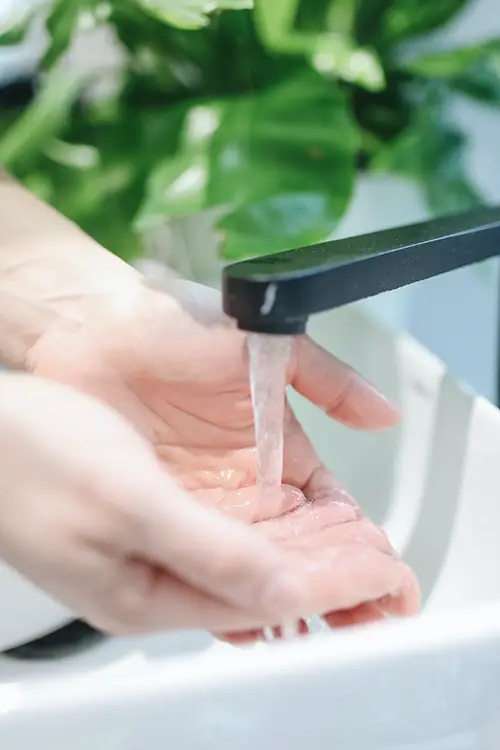
How do home water filtration systems work?
The mechanical filtration part of home water filtration systems work by physically blocking sediment and other particles of contaminants from entering your home’s water supply. The filters capture these undesirable elements, letting cleaner, safer water flow through your home’s plumbing, out your faucets, and to your appliances.
Your system may also use salt and resin beads to remove calcium and magnesium ions as part of the regeneration process of softening the water and removing the chlorine taste and smell.
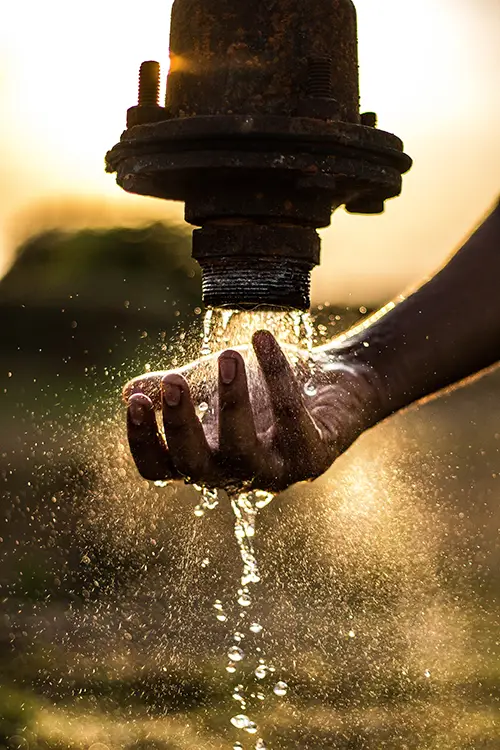
Where should a whole house water filter be installed?
Whole house water filters are considered “point-of-entry” systems and generally will be installed as close as possible to the main water shut-off valve where the main water feed enters the house.

How long does a whole house water filter system last?
While the actual filter itself will need to be replaced at least once a year, depending on how much water it’s processing, the system as a whole should last a minimum of 10-15 years or more. You may need a replacement filter more often if you have a larger family or use a larger volume of water (also known as gallons per minute or gpm).
Our whole house water filter systems come with a 10-year warranty which extends the electronics equipment of your warranty to a total of 10 years.
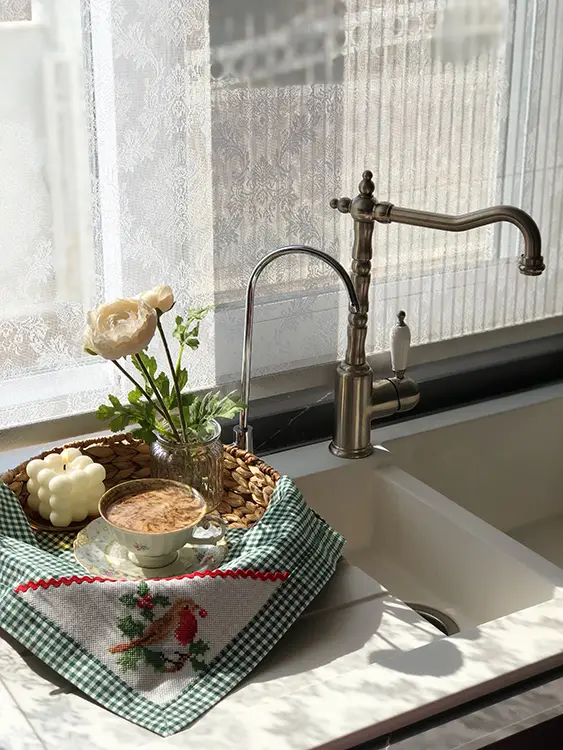
What are under-sink water purifier disadvantages?
There are numerous advantages to having an under-sink drinking water purification system. But there are disadvantages to consider, too. Some of the disadvantages include:
- Requires a separate tap/faucet
- Installation can be difficult
- Takes up some of your cabinet space
- No temperature control/selection
- Filter cartridges need to be replaced
TYPES OF WATER PROBLEMS TREATED
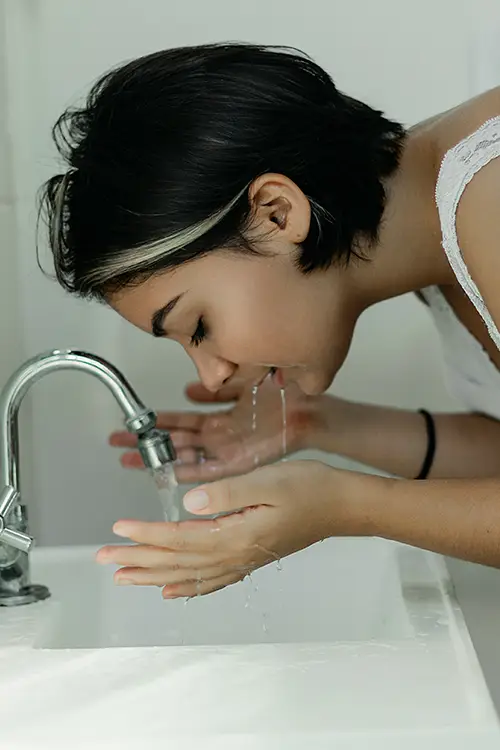
What are the most common issues with tap water?
Most of us grew up drinking water straight from the hose outside when we were kids, and we seem to be fine. So what’s the big deal with drinking tap water? Tap water contains many harmful substances that may have long-term health effects. Some of the most common problems with tap water are as follows:
Arsenic is a natural metalloid chemical often found in residential tap water. In large amounts, it can pose serious health complications.
Arsenic poisoning can cause:
- Partial paralysis
- Numbness in hands and feet
- Vomiting
- Diarrhea
- Nausea
- Stomach pain
- Discoloration of the skin
- Blindness
Consuming large amounts of arsenic found in tap water is also called arsenicosis. Arsenicosis can be fatal, and it can kill a person quickly.
Chlorine is a chemical element often used in swimming pools because it can kill germs and bacteria. However, when consumed in large amounts can be extremely dangerous. It produces corrosive acids when it enters the body, and the following health issues can occur:
- Chronic cough
- Breathing difficulty
- Chronic sore throat
- Chest tightness
- Airway irritation
Fluoride is a mineral present in the teeth, bones, air, rocks, plants, soil, and water. In excess, fluoride can cause fluorosis (a condition that changes your tooth enamel) and severe skeletal problems.
Mercury, copper, lead, cadmium, aluminum, and chromium are all heavy metals found in tap water. When taken for a long period, you could develop Parkinson’s disease, dementia, and Alzheimer’s disease. You can also develop brain deformities.
Herbicides and pesticides are used to control insects and unwanted plants, and these chemicals often end up in tap water. These chemicals can irritate your eyes and skin and cause your allergies to worsen.
Water softening is another common problem with tap water. Although this process is meant to remove heavy irons in plumbing, it takes away minerals that are needed for the body and replaces them with sodium chloride. Sodium chloride can cause the following problems when ingested:
- Respiratory problems
- Convulsions
- Hypernatremia (excessive thirst)
- Vomiting
- Gastrointestinal tract irritation
Nitrates are inorganic compounds usually found in processed meats and used as preservatives. Nitrates occur naturally in the water, air, and soil as well. Excess nitrates can cause methemoglobinemia, a blood disorder that can lead to a lack of oxygen supply in the blood cells.
Radon is a natural gas found in the air, and it releases into tap water when it passes through rocks with uranium. Radon can put you at risk for stomach and internal organ cancers.
Manganese is often found naturally in ground water, but high levels of manganese can affect our kidneys and our reproduction systems.
Diethyl Phthalate is a colorless liquid used to make flexible plastics. Consuming tap water contaminated with diethyl phthalate can lower sperm count, disrupt sex hormones, and alter genital development.
Bacteria, like E. coli, is one of the most common things found in tap water. E. coli can cause nausea, vomiting, abdominal tenderness, pain, cramping, and diarrhea. Legionella is another common bacteria found in tap water that can cause issues with the lungs and localized infections. Salmonella, another common bacteria in tap water, can cause food poisoning, typhoid fever, and gastroenteritis (inflammation of the intestines and stomach).
Learn How Safe Drinking Water is in These Cities:
Bakersfield
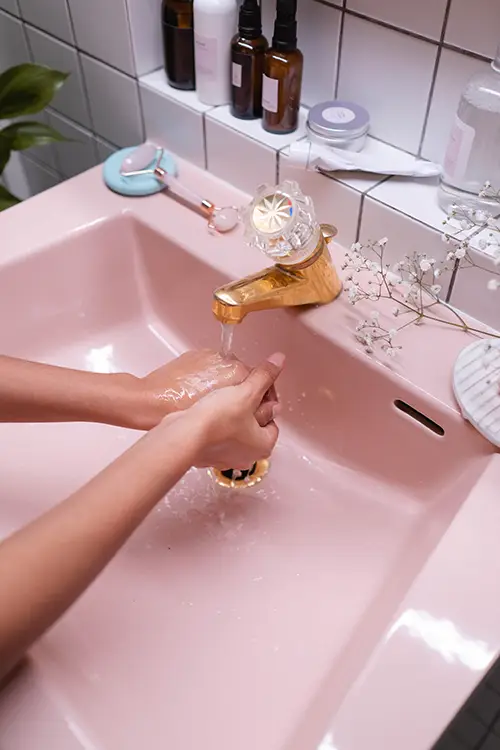
How do I know if I have hard water?
The hardness of water is determined by how much calcium and magnesium it contains. There are several signs you can look for to tell if you have hard water:
- Spots on your glasses and silverware when they come out of the dishwasher.
- Mineral stains on your clothes left behind after washing them in the washing machine.
- Feeling a film-like texture on your hands after watching them, requiring you to have to wash longer.
- Lower water pressure or low flow rate throughout your home.
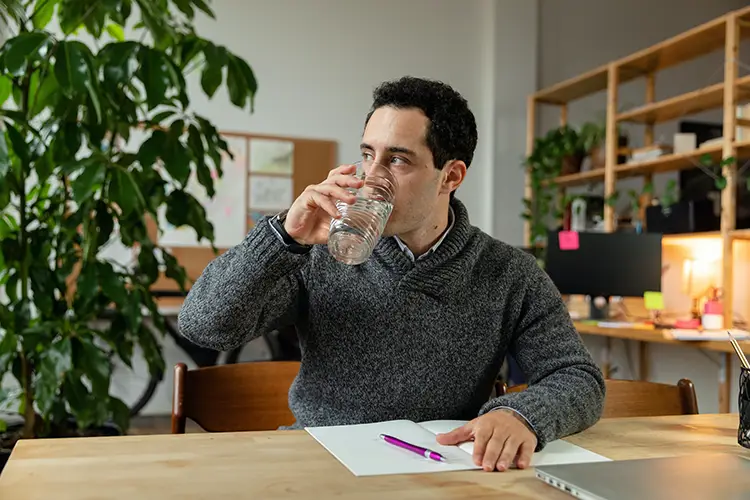
Why does my water taste bad?
Your water should be both tasteless and odorless. If you have foul-tasting water, there are several factors that could be contributing to the bad taste.
Chlorine – Usually not a concern, could be leftover from the treatment process of making water safe to drink.
Petroleum/Gasoline/Turpentine – Gasoline, paints, and other manufacturing products are often made with volatile organic compounds (VOCs) which pose many health risks. If your water tastes or smells like these substances, it may be contaminated by an underground storage tank that is leaking gas, paint, or other harmful products into the water supply. Water that smells like this is not common, and you should contact your local health agency immediately.
Metals – Could be from traces of the metals from your pipes. Although iron is usually not a concern, too much copper could lead to copper poisoning.
Sulphur/Rotten Eggs – Caused by hydrogen sulfide in the water. Hydrogen sulfide comes from a bacteria in the water or somewhere in your water system.
Fish/Moldy Earth – There may be solid organic matter in your water that is starting to decay. You can do a simple test to see where the matter may be located. Put some water into a glass and swirl it. If the smell disappears after swirling, the matter may be in your sink drain. If it remains after swirling, the decay may be in the water supply itself.
Salt – Usually not a concern. Could be just that there are naturally higher levels of salt in your water supply.

Do water filtration systems remove chlorine?
The short answer is… only some of them. While most do not remove chlorine from the water, you can remove up to 98% of chlorine from your water by using a reverse osmosis water filtration system. Another effective way of getting chlorine out of your water is by using a granular activated carbon (GAC) system. However, while this type of filter is effective at removing chlorine, it is not effective at removing chloramines. Chloramines are similar to chlorine, but they last much longer in the water supply and produce fewer byproducts.
Chlorine is often used by the city’s water filtration system for disinfection, but ingesting too much chlorine can be damaging to your health. You can schedule a free water test to see if you have chlorine in your water.
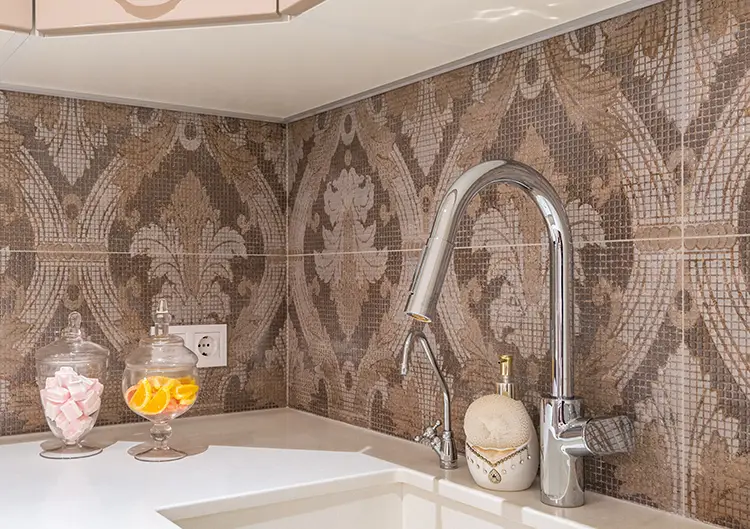
Do water filtration systems remove nitrates?
If you get nitrates in your water, they can be costly to remove. You’ll need to use ion exchange, reverse osmosis, or distillation to remove them.
Ion exchange works by removing materials from the water through water softening and water deionization.
Reverse osmosis uses a semi-permeable membrane that filters out unwanted molecules and contaminants.
Distillation filters and purifies your water by relying on evaporation.
TYPES OF WATER TREATMENT SYSTEMS
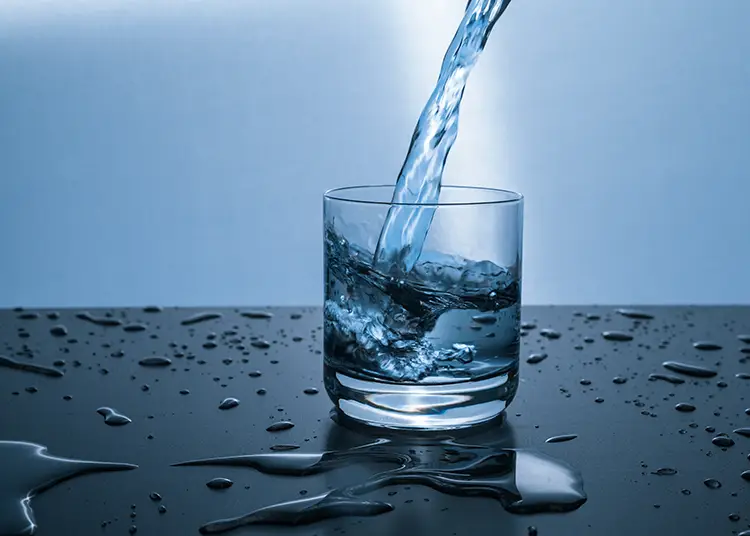
What are the three most common types of home water treatment systems?
Reverse Osmosis – Reverse osmosis water filtration systems are designed to remove bacteria and other contaminants from your water. For example, this type of system can remove 98% of chlorine from your water, a common water issue.
Ultraviolet – Ultraviolet systems not only remove bacteria and other contaminants, but also can kill mold and bacteria by exposing the water in the system to ultraviolet light.
Water Softeners – Water softeners are a sediment filter designed to remove excess build up calcium and magnesium. Although calcium and magnesium are not harmful for your health, they can lessen the lifespan of your plumbing system and change the taste of your drinking water.
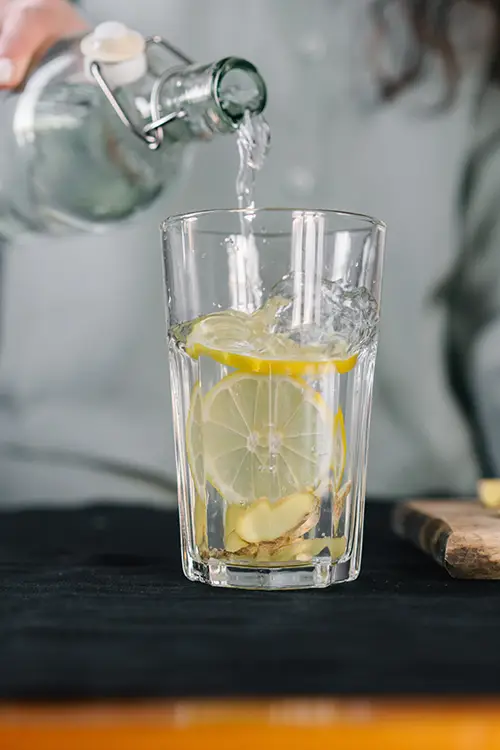
What is a reverse osmosis system? How does it work?
Reverse osmosis is a water system that filters water through a semi-permeable membrane to filter out things such as chlorine, salt, dirt, and other large particles. A reverse osmosis system can also help to filter out microorganisms which may be harmful to your health.
Reverse osmosis works by applying pressure to the water to change osmotic pressure. In other words, it applies pressure to change the high concentration of contaminants into a low concentration of contaminants. When pressure is applied this way, it allows only pure water to pass through the membrane, so your water is always clean.

What is a water softener?
A water softener is a system that works to remove high levels of calcium and magnesium from your water.
Calcium and magnesium cause what is known as “hard water”. You may have hard water if you notice spots on your dishes after washing them, mineral stains on your clothes after washing them in a washing machine, a film-like texture on your hands after washing, or lower water pressure in your home.
Water softener systems work to reduce the levels of calcium and magnesium and essentially “soften” your hard water to avoid these problems. Build up of calcium and magnesium can also cause problems with your plumbing if they become too concentrated within your system.
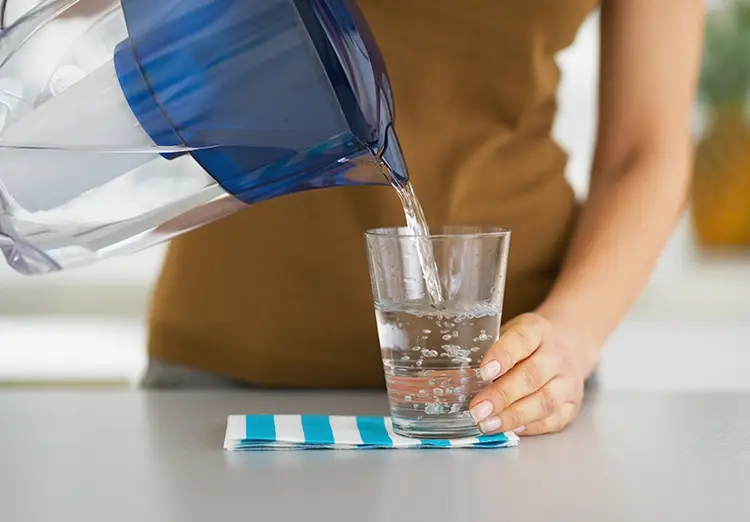
Do water filter pitchers work very well?
Although they aren’t 100% effective (no system is), water filter pitchers can help to improve the taste of your water.
You want to get a pitcher that is certified by the National Sanitation Foundation (NSF). This will guarantee that the filter you choose will actually do what it says it does. You can check this database to see if your water filter pitcher is certified.
The manufacturing labels on the water filter pitchers will also often tell you which contaminants your specific pitcher will filter out.
Even bottled water is often not a good enough solution to getting high-quality water throughout your home. Home water filters are going to be your best option for filtering out impurities in your water and for making sure your whole home has clean water.

What do water softeners do?
Water softeners are salt-free water filters that reduce the “hardness” of water from your water source, or they filter out excess minerals. The two most common minerals that water softeners filter out are calcium and magnesium. Although not harmful to your health, these minerals can cause problems for your plumbing system including your pipes, water heater, and water pressure.
HOW TO CHOOSE THE RIGHT HOME WATER FILTRATION SYSTEM
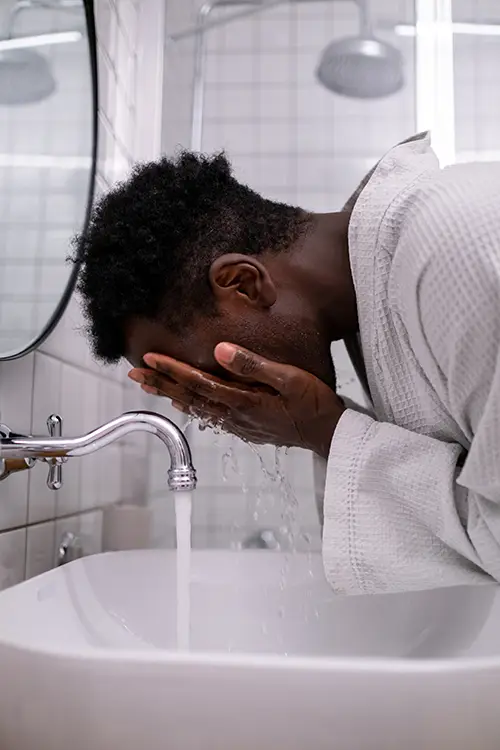
What is the best home water filtration system?
The best type of home water filtration system is one that ensures that all of the water you use in your home is safely free of contaminants. You want your water to be safe to drink and cook with, but also to bathe and clean with as well.
The best way to get the benefits of filtered water throughout your home is with a whole house water filtration system — or point-of-entry system.
As the name suggests, this type of system filters the water as it enters your home. As the water flows through, the physical, mechanical filter traps and removes any solid particles contained in the source water. A water softener or refiner also can be added to correct additional issues.
The result is that all the water flowing through your plumbing, coming out of your faucets, being used by your appliances and your family is the cleanest and safest it can be.
Is My Drinking Water Safe in:
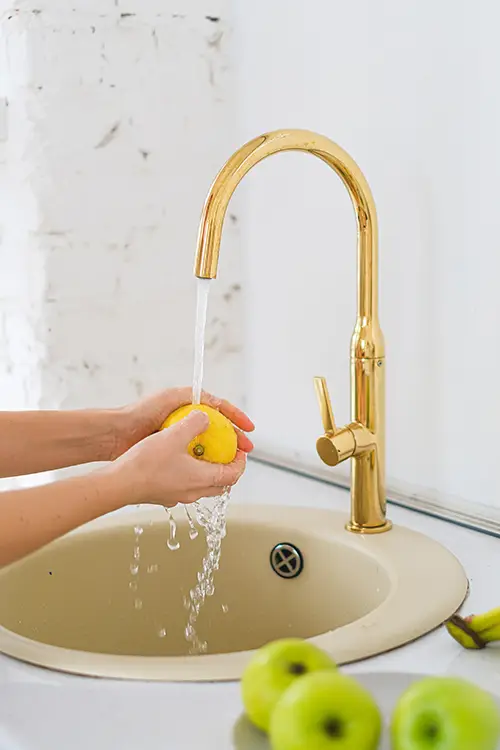
What is the best water filtration system for under sink?
The best under-sink water filtration system is a reverse osmosis system. In this type of system, pressure forces contaminated water through a semipermeable membrane filter, leaving only clean water to continue flowing through to be used.
Reverse osmosis under-sink systems deliver the cleaned water through a dedicated, extra faucet, separate from the faucet connected to the home’s primary hot and cold water supply lines.

What should I look for when buying a whole house water filter?
First and foremost, you want to make sure your whole house water filter will handle the specific type of water contamination you have. So, have your water tested first.
Then, once you know what’s in your water that needs to be removed, confirm that the whole house water filter you’re considering will actually do what you need it to do. Different types of filters remove different specific contaminants.
You also may want to consider the additional benefits of a system that includes water conditioning or water softening in addition to filtering out the solid contaminants.

Can I install my own whole house water filter?
With the right tools, skills, and plumbing experience, you can certainly install your own whole house water filter. However, most people prefer to have their systems professionally installed for additional peace of mind.

Which home water filtration system has the highest ratings?
NSF International is an independent public health and safety organization that rates various products, including home water filtration systems. Since ratings are based on the specific contaminants filtered out by a specific system, it’s best to look up the water filters you’re considering directly in the NSF database.
Will installing a home water filtration system void my home warranty?
While home warranties do often have strict regulations, if you hire a professional, properly licensed company like EcoWater of Central California, to install your system, your warranty will not be voided. Learn more here.
Can I install my own whole house water filtration system?
Installing your own system is possible, given that you have the tools, time, knowledge and skills required. However, it will likely void the warranty of the system. When you purchase an EcoWater system, we install the system for you. This ensures that both our installation and equipment is backed by warranty. To learn more Check out the pros and cons of installing your own water filtration system here.
HOW MUCH DO HOME WATER FILTRATION SYSTEMS COST?

How much does it cost to install a whole-house water filtration system?
The costs to install a whole house water filtration system vary, depending on the type of system needed as well as other variables. Some of the factors that affect cost include:
- Type of system
- Size of system
- Complexity of system
- Brand of system
- Filtration rating
- Installation location
- Local labor costs
Both Angi and HomeAdvisor quote an average range of between $1,000 and $4,000, with the national average at $2,078.

Is a whole house water filtration system worth it?
If your tap water has more contaminants in it than you want in your home — even if it passes “safe” public standards, and especially if it doesn’t — then you will find a whole house water filtration system worth it.
While “worth it” is a personal judgment call, most people find the fact that having cleaner, healthier water for their families to use make the system worth it. Also, in addition to being better for the people in your household, treated water can extend the life of your appliances, plumbing fixtures, and even your shower doors.
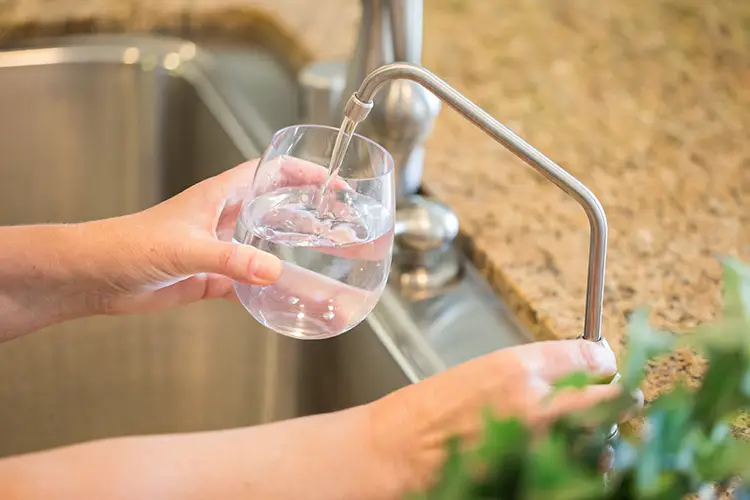
How much does it cost to have a plumber install an under-sink osmosis filtration system?
In most cases, installing an under-sink reverse osmosis filtration system is relatively easy for an experienced plumber. To do the installation, a plumber will charge you for their time and any extra materials needed beyond what comes with the system itself.
While plumbers each have their own labor rate that they charge, and the under-sink conditions they face for each install may require different materials, the average cost to have a plumber install an under-sink reverse osmosis system is $150-$300.

Are under the sink water filters worth it?
According to experts at Consumer Reports, under-sink water filters are “more effective at removing lead, chlorine, and other contaminants than popular refrigerator filters and water filter pitchers.” They’re also “inherently more convenient than pitchers, with higher filter capacity.”
So, if you want cleaner, better-tasting, healthier drinking water from an easy, convenient source right at your sink then, yes, under-sink water filters are worth it.
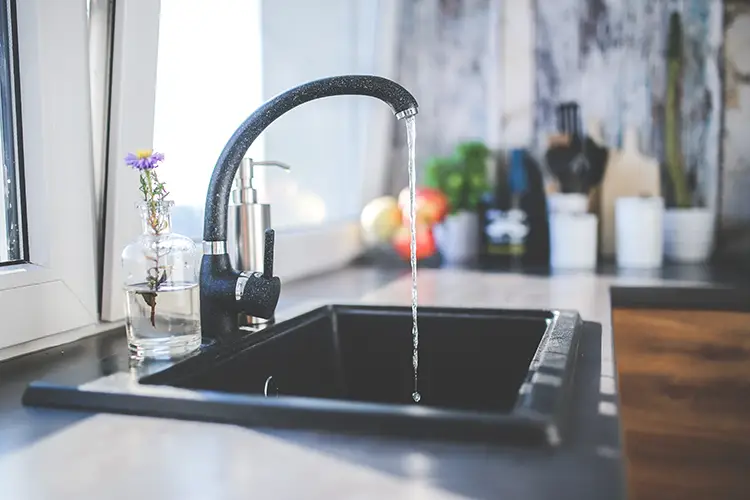
Is under-sink reverse osmosis worth it?
“Under-sink reverse osmosis filters are recommended if your water-quality report reveals a wide range of contaminants or bacteria,” according to experts at Consumer Reports.
Reverse osmosis filtration is considered superior to simple inline or carbon water filters because of the multiple stages involved — both pre-filter and post-filter — as well as the reverse osmosis filter membrane. It’s a more advanced type of filtration, and it costs more accordingly.
However, the additional cost is worth it if your tap water is putting your family’s immediate and/or long-term health at risk. To know for sure if under-sink reverse osmosis would be worth it for you, have your water tested so you know exactly what’s in it.
ONGOING MAINTENANCE
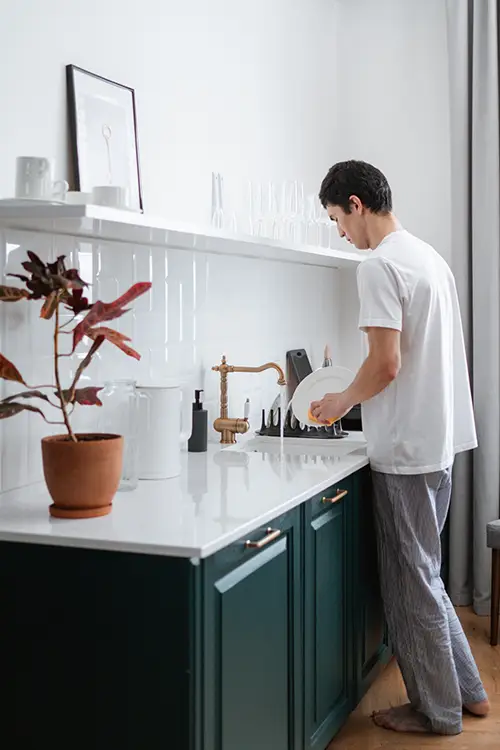
Do home water filtration systems require ongoing maintenance?
Yes. Just like public water systems, home water filtration systems will also require occasional maintenance. Your system will need maintenance if parts need to be replaced or repaired, and it may also require maintenance to take preventative measures to ensure it continues to function properly.
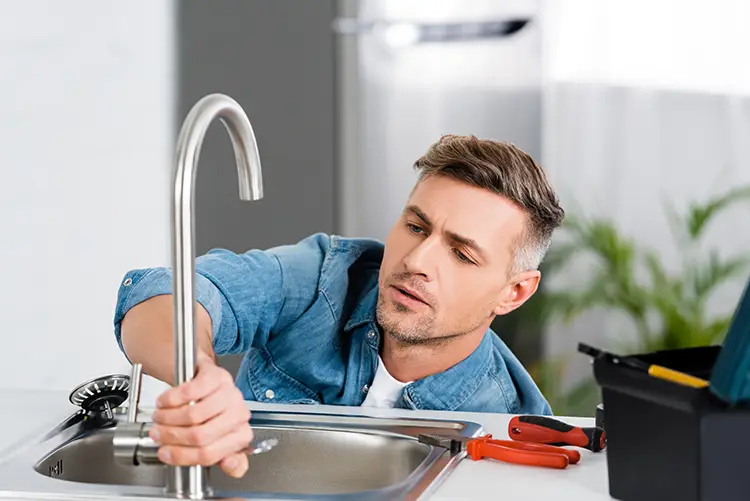
Do under-sink filters need separate faucets?
Yes, under-sink filters need a separate faucet on your countertop since they do not replace your main faucet. Under-sink water filters often come with a smaller faucet that attaches to your sink and is to be used just for filtered water.

How often should you change an under-sink water filter?
It depends on several factors.
For the average family of four, the carbon filter on your under-sink water system should be changed at least once every six months to prevent build up of toxins. If you are a couple with no kids in your household, you may only need to change it once a year. Or, if there are more than four people in your household, you may need to change it every three months. It also may just depend on how frequently you use your water filter.
The quality of water in your neightborhood can also affect how long it takes until you need to change your filter. If your neighborhood has lower quality water, you may need to change it more often.
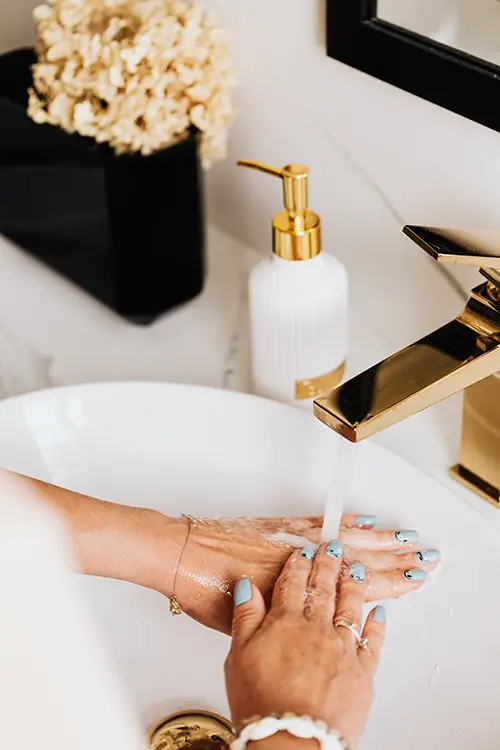
Can bacteria grow in water filters?
Some water filters can grow bacteria, but not all water filters promote bacterial growth. Water filter pitchers may promote bacteria growth since the build up of materials that the filter is keeping out is the perfect environment for bacteria to grow in. This is why water pitcher filters need to be changed more often.
However, there are also water filters called bacteriostatic water filters that inhibit the growth of bacteria. An example of a bacteriostatic water filter is one that uses UV light to purify the water. Reverse osmosis systems are also very effective at removing and keeping bacteria out of the water.
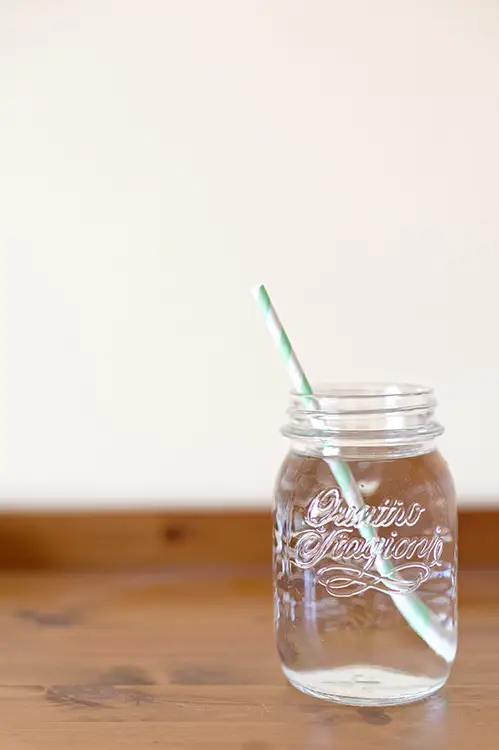
How long do under sink reverse osmosis systems last?
Like any kind of hardware, water filtration systems will last as long as you take care of them and provide them proper maintenance when necessary. Reverse osmosis systems can last up to 10 or 15 years if they are taken care of properly and receive regular maintenance including changing the water filters at the appropriate times.
